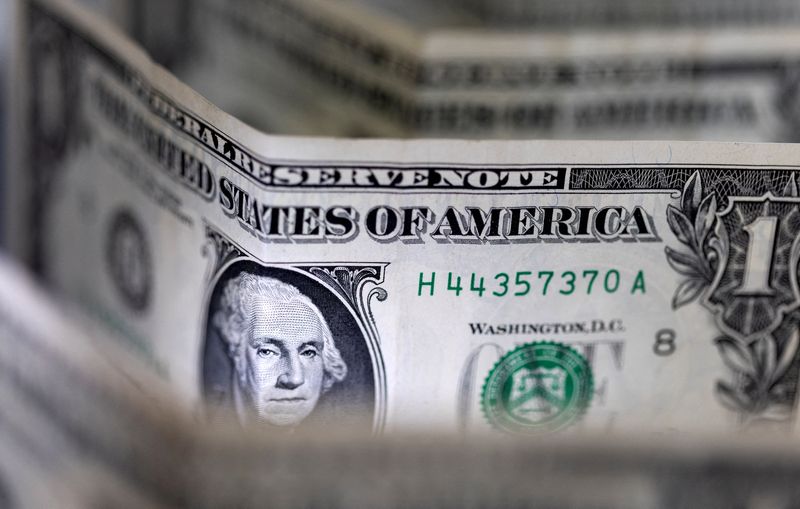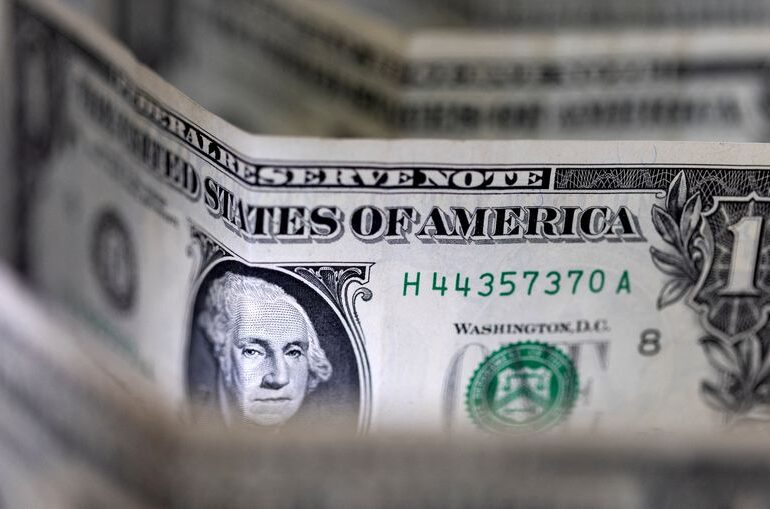
© Reuters
By Peter Nurse
Investing.com – The U.S. dollar retreated in early European trading Tuesday with risk sentiment on the rise, while sterling retained its recent gains after the U.K. government’s policy u-turn.
At 03:05 ET (07:05 GMT), the , which tracks the greenback against a basket of six other currencies, fell 0.5% to 111.145, dropping to a two-week low.
Traders are beginning to wonder if the slowdown visible in the U.S. and world economies will force the to adjust its rate-hiking trajectory lower.
This has driven a sharp rally in government bonds over the last week, driving benchmark Treasury yields down all along the yield curve, a move which has continued Tuesday.
The currently stands at 3.60%, down another 5 basis points from Monday’s close, while the 2-year yield, more sensitive to expectations of Fed action, was down 7 basis points at 4.03%.
That said, Goldman Sachs still sees upside for the dollar.
“While valuations have become stretched, they are also consistent with the macro environment, and so we still see more dollar strength ahead,” analysts at the investment bank said, in a note. ”We still think 5%-7% of further dollar upside seems like a reasonable range along a more hawkish policy path from the Fed.”
climbed 0.5% to $1.1375 in the wake of the British government’s decision to reverse the proposed scrapping of the highest rate of income tax.
New Finance Minister Kwasi Kwarteng also announced he would be bringing forward his fiscal statement in an attempt to calm markets as he is likely to announce spending cuts to try and limit the government’s borrowing.
Britain’s bond market is undergoing “a major repricing”, but should comfortably absorb the extra 62 billion pounds ($69 billion) of debt announced, the head of the U.K. Debt Management Office said on Monday.
Elsewhere, rose 0.4% to 0.9864, ahead of the release of the latest for the Eurozone as a whole for August. These are expected to remain at highly elevated levels, increasing the pressure on the European Central Bank to continue with another hefty interest rate rise later this month.
rose 0.1% to 144.65, remaining close to the psychologically-important 145 level after data showed that inflation in Tokyo rose to an eight-year high in September.
rose 0.4% to 0.6541, gaining even after the raised interest rates by a lower-than-expected 25 basis points, saying it intends to maintain a balance between curbing inflation and ensuring that sharp hikes in interest rates do not dampen economic growth.
climbed 0.5% to 0.5749, ahead of the Reserve Bank of New Zealand’s on Wednesday, which is expected to result in interest rates rising by half a percentage point for a fifth straight time

